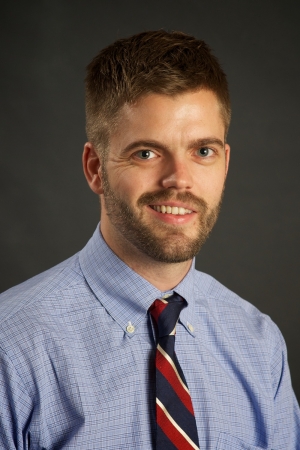Two Studies on Health Disparities Receive Funding
March 28, 2013- Research
Two assistant professors at the USC School of Social Work have been awarded grants by the Southern California Center for Translational Science Institute to study health issues among vulnerable and underserved populations.
Jeremy Goldbach will test the effectiveness of an intervention designed to enhance family and peer communication, increase knowledge of the consequences of substance abuse, reduce substance use, and improve school bonding among Hispanic families. His colleague, Benjamin Henwood, will develop a theoretical framework for research on health disparities among people living in permanent supportive housing.
Although Hispanic youth are disproportionately affected by substance abuse, HIV and mental health problems, there is a lack of evidence-based behavioral health programs and practices that address cultural risk factors related to those negative outcomes.
Goldbach will examine the revised version of Familia Adelante, a 12-week educational intervention that features HIV prevention content. He will compare the effectiveness of the revised intervention to the original curriculum among 20 Hispanic families.
Goldbach’s goal is to finalize the process of implementing the intervention and prepare for a larger study using a random sample. Findings will be used to improve the design and delivery of effective HIV and substance use prevention services for underserved Hispanic populations.
Henwood will also explore health disparities in a relatively marginalized group: residents of permanent supportive housing.
In recent years, policy makers have shifted toward permanent supportive housing rather than temporary shelter as a strategy to address chronic homeless. Although stable housing can serve as the foundation for healthier living, research and planning efforts related to permanent supportive housing have largely ignored how the neighborhood and environmental factors affect health outcomes.
Henwood’s study will examine the use of a theoretical framework that accounts for the effects of the built environment when researching health disparities among those living in permanent supportive housing. The built environment, a topic of increasing interest in public health research, refers to physical and social elements that constitute a community.
Henwood will convene a meeting of academic and clinical researchers from the USC School of Social Work, Keck School of Medicine of USC, and USC Price School of Public Policy, as well as representatives from community permanent supportive housing programs.
The team will establish a coherent theoretical framework informed by multiple perspectives to guide future research. In addition to the formation of this multidisciplinary team, the project will involve publishing an article on the new theoretical guidelines and identify future sources of funding to expand the public health significance of research on permanent supportive housing.
To reference the work of our faculty online, we ask that you directly quote their work where possible and attribute it to "FACULTY NAME, a professor in the USC Suzanne Dworak-Peck School of Social Work” (LINK: https://dworakpeck.usc.edu)
